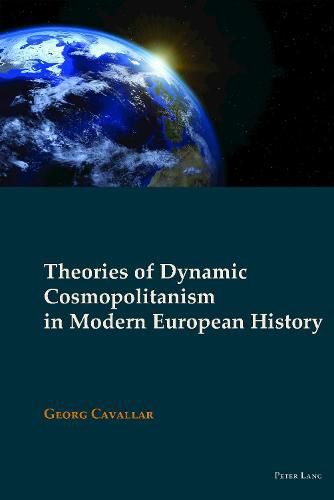Readings Newsletter
Become a Readings Member to make your shopping experience even easier.
Sign in or sign up for free!
You’re not far away from qualifying for FREE standard shipping within Australia
You’ve qualified for FREE standard shipping within Australia
The cart is loading…






This title is printed to order. This book may have been self-published. If so, we cannot guarantee the quality of the content. In the main most books will have gone through the editing process however some may not. We therefore suggest that you be aware of this before ordering this book. If in doubt check either the author or publisher’s details as we are unable to accept any returns unless they are faulty. Please contact us if you have any questions.
It is often assumed that cosmopolitan thinkers since the Renaissance have simply adopted and refined concepts from classical antiquity. This study argues that modern European cosmopolitanism should be perceived as a unique phenomenon, distinct from Greek and Roman forms of cosmopolitan thinking. One key feature is its dynamism, or the idea of change built into modern theories of cosmopolitanism. Covering the period from the 1530s to the 1920s, this book investigates various manifestations of cosmopolitanism, including normative individualism, the dawn of historical thinking, and the dynamic conceptions of law and rights and of the international community. It analyses the international legal theories of selected authors from Francisco de Vitoria to Austrian lawyers Heinrich Lammasch and Alfred Verdross. The author focuses in particular on the development of hospitality rights and the right to immigration, republicanism and cosmopolitanism, and cosmopolitan education.
$9.00 standard shipping within Australia
FREE standard shipping within Australia for orders over $100.00
Express & International shipping calculated at checkout
Stock availability can be subject to change without notice. We recommend calling the shop or contacting our online team to check availability of low stock items. Please see our Shopping Online page for more details.
This title is printed to order. This book may have been self-published. If so, we cannot guarantee the quality of the content. In the main most books will have gone through the editing process however some may not. We therefore suggest that you be aware of this before ordering this book. If in doubt check either the author or publisher’s details as we are unable to accept any returns unless they are faulty. Please contact us if you have any questions.
It is often assumed that cosmopolitan thinkers since the Renaissance have simply adopted and refined concepts from classical antiquity. This study argues that modern European cosmopolitanism should be perceived as a unique phenomenon, distinct from Greek and Roman forms of cosmopolitan thinking. One key feature is its dynamism, or the idea of change built into modern theories of cosmopolitanism. Covering the period from the 1530s to the 1920s, this book investigates various manifestations of cosmopolitanism, including normative individualism, the dawn of historical thinking, and the dynamic conceptions of law and rights and of the international community. It analyses the international legal theories of selected authors from Francisco de Vitoria to Austrian lawyers Heinrich Lammasch and Alfred Verdross. The author focuses in particular on the development of hospitality rights and the right to immigration, republicanism and cosmopolitanism, and cosmopolitan education.